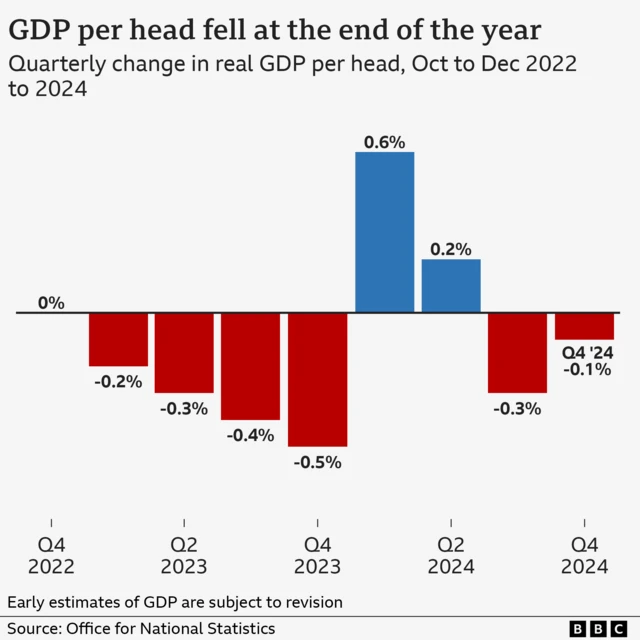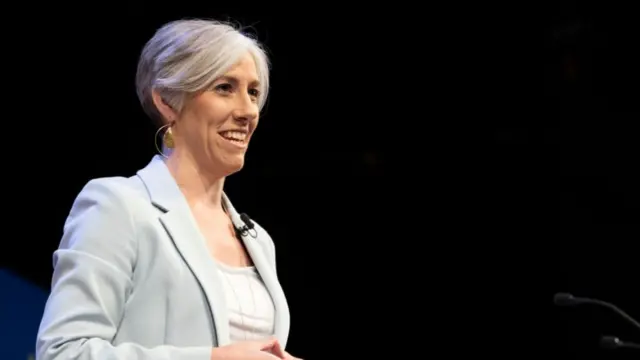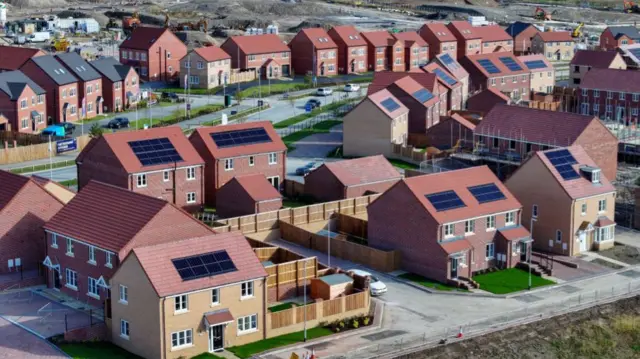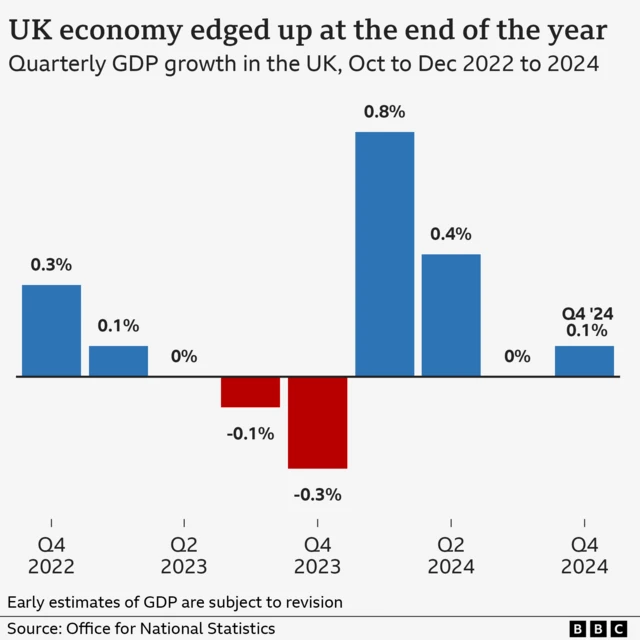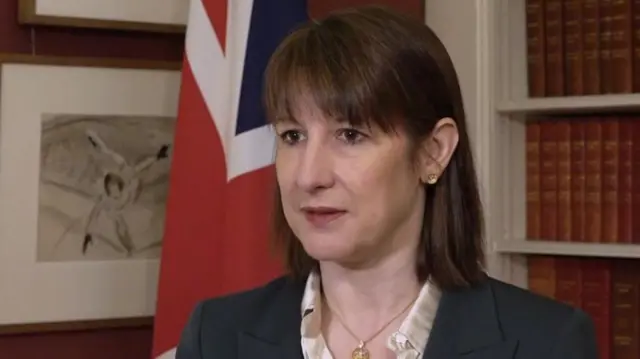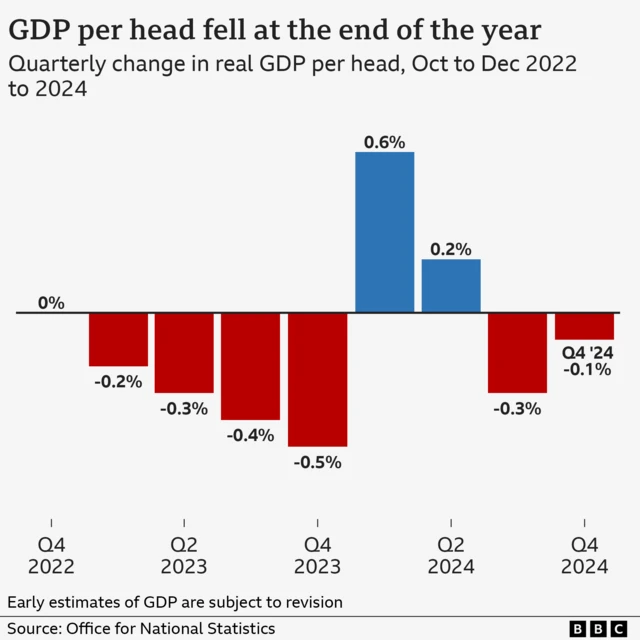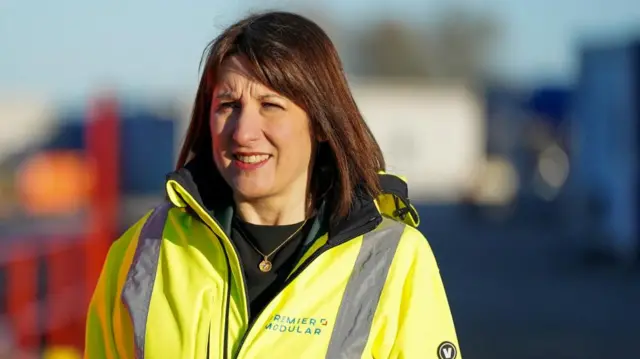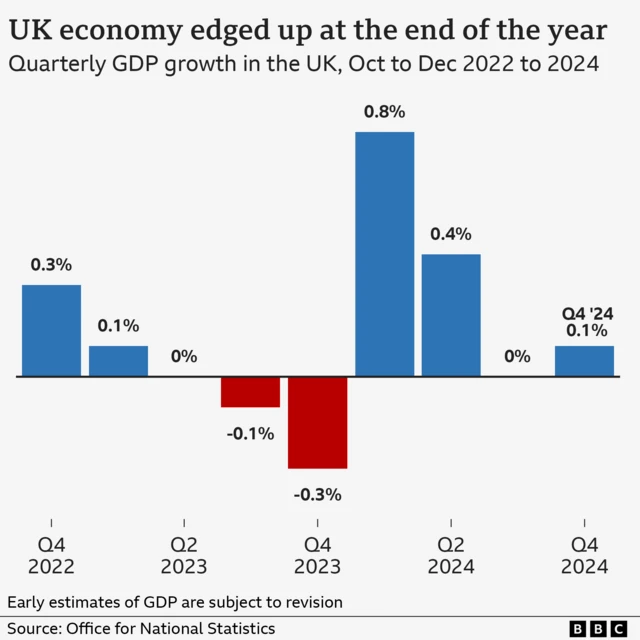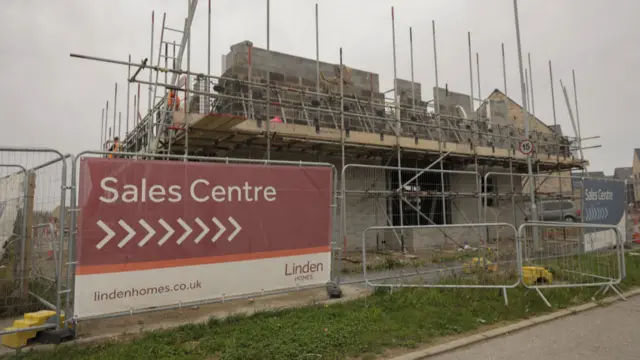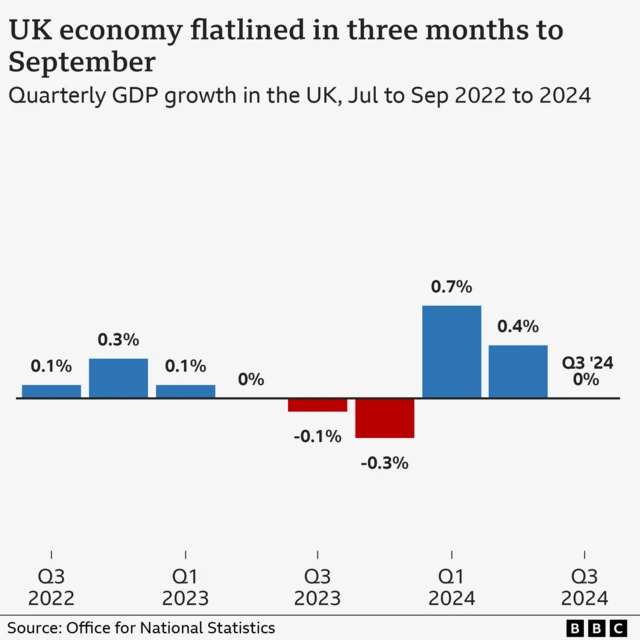Recap: UK economy unexpectedly grows by 0.1%published at 10:28 GMT 13 February
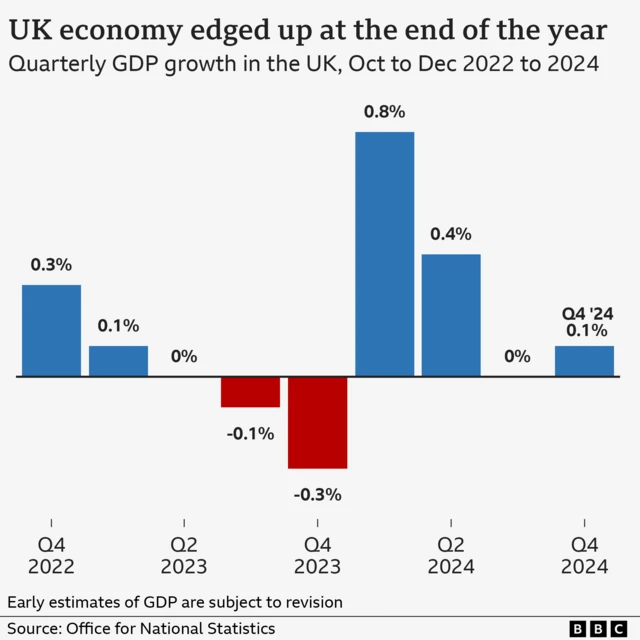
At 07:00 this morning, new figures revealed that UK economic activity expanded in the final three months of 2024. Here's what we learned:
- The UK economy grew by 0.1% between October and December, surpassing forecasts of a 0.1% decline
- In December alone, GDP rose by 0.4%, helped by strong trading at pubs and bars, as well as companies such as machinery manufacturers
- But GDP per head - which takes into account the growing population - fell by 0.1% in the final three months of 2024, and across the year as a whole
- Chancellor Rachel Reeves says that while growth is higher than expected, "I'm still not satisfied"
- And shadow Chancellor Mel Stride says Labour's Budget - which includes a rise in National Insurance for businesses in April - "is killing growth"
We're closing our live coverage now - read our round-up story here. Separately, we also have a new story about Rachel Reeves and her online CV here.
Thanks for joining us.
